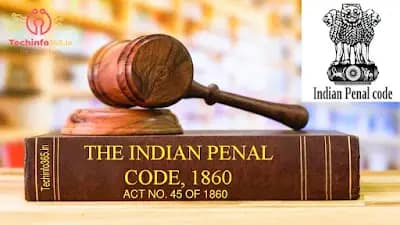The Indian Penal Code (IPC) is a comprehensive legal code that outlines criminal offenses and their punishments in India. The code was enacted in 1860 during the British colonial rule and has been amended several times since then. Below is a general arrangement of sections in the Indian Penal Code:
1.Chapter I: Introduction.
Section 1: Title and extent of operation of the Code
Section 2: Punishment of offenses committed within India
Section 3: Punishment of offenses committed beyond but which by law may be tried within India
Section 4: Extension of Code to extra-territorial offenses
Section 5: Certain laws not to be affected by this Code
2.Chapter II: General Explanations
Sections 6 to 52A
3.Chapter III: Punishments
Sections 53 to 75: Deals with different types of punishments such as death, imprisonment, and fines
4.Chapter IV: General Exceptions
Sections 76 to 106: Enumerates various situations where an act would not be considered an offense
5.Chapter V: Abetment
Sections 107 to 120: Deals with the concept of abetment and various forms of abetment
5A.Chapter VA: Criminal Conspiracy
Sections 120A and 120B: Defines and penalizes criminal conspiracy
6.Chapter VI: Offenses Against the State
Sections 121 to 130: Deals with offenses like waging war against the government, sedition, and related offenses
7.Chapter VII: Offenses Relating to the Army, Navy, and Air Force
Sections 131 to 140: Covers offenses specific to the armed forces
8.Chapter VIII: Offenses Against Public Tranquility
Sections 141 to 160: Includes offenses like rioting, affray, promoting enmity between different groups, etc.
9.Chapter IX: Offenses by or Relating to Public Servants
Sections 161 to 171: Deals with corruption and misconduct by public servants
10.Chapter X: Contempts of the Lawful Authority of Public Servants
Sections 172 to 190: Deals with various offenses related to disobedience of public servants, false information, etc.
11.Chapter XI: False Evidence and Offenses Against Public Justice
Sections 191 to 229: Deals with perjury, giving false evidence, and related offenses
12.Chapter XII: Offenses Relating to Coin and Government Stamps
Sections 230 to 263: Covers offenses related to counterfeiting coins and government stamps
13.Chapter XIII: Offenses Relating to Weights and Measures
Sections 264 to 267: Deals with offenses related to fraudulent weights and measures
14.Chapter XIV: Offenses Affecting the Public Health, Safety, Convenience, Decency, and Morals
Sections 268 to 294: Includes offenses like public nuisances, obscene acts, and adultery
15.Chapter XV: Offenses Relating to Religion
Sections 295 to 298: Deals with offenses related to religion, such as hurting religious sentiments
16.Chapter XVI: Offenses Against the Human Body
Sections 299 to 377: Covers offenses like murder, culpable homicide, rape, and unnatural offenses
17.Chapter XVII: Offenses Against Property
Sections 378 to 462: Deals with offenses related to theft, robbery, dacoity, criminal trespass, etc.
18.Chapter XVIII: Offenses Against the State Authority in Connection with Elections
Sections 171A to 171I: Deals with offenses related to elections
19.Chapter XIX: Contempt of the Lawful Authority of Public Servants
Sections 172 to 190: Deals with various offenses related to disobedience of public servants, false information, etc.
20.Chapter XX: Offenses Relating to Marriage
Sections 493 to 498: Deals with bigamy, adultery, and related offenses
21.Chapter XXI: Defamation
Sections 499 to 502: Defines and penalizes defamation
22.Chapter XXII: Criminal Intimidation, Insult, and Annoyance
Sections 503 to 510: Covers offenses related to criminal intimidation, insult, and annoyance
This is a brief overview, and the Indian Penal Code contains many more sections covering a wide range of offenses and legal provisions. It’s important to refer to the latest and complete version of the IPC for accurate and up-to-date information.

